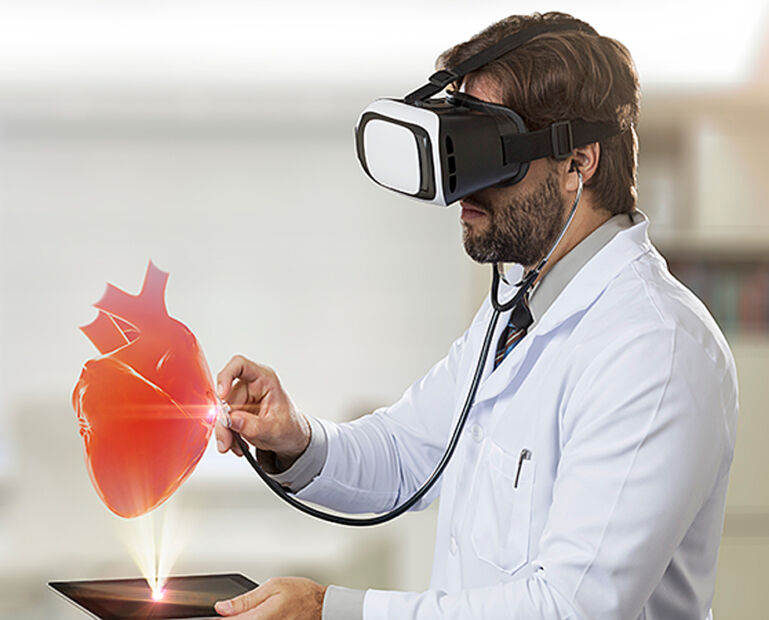Cardiologists use Vodafone AR to access hearts
- June 26, 2023
- Steve Rogerson

Vodafone, in collaboration with Italian start-up Artiness, has created a way to let cardiologists see and interact with 3D models of patients’ hearts using 5G and augmented reality (AR).
Boston Scientific, a specialist in medical technology, has become the first company to adopt this in Italy to help train cardiologists.
Immersive technologies such as AR and virtual reality (VR) are driving the transformation of the healthcare industry, leading to greater efficiency and speed of training, diagnostics and surgical operations.
Vodafone says it technology provides more ways to analyse treatment options and make a more effective interpretation of the data to select the option that offers the best result for the patient; it also encourages dialogue between doctors.
Using an AR headset, connected via 5G edge computing technology, cardiologists can access and interact with medical data and a patient-specific holographic model of the heart for training purposes. The hologram can virtually zoom, cut, section and replicate the medical information necessary for the positioning and implantation of devices such as catheters and stents.
In this way, the surgeon benefits from evaluating options with other specialists and receiving training on how to perform surgery or implant such devices, thanks to the speed and reliability offered by the 5G network.
Thanks to three-dimensional images of the patient’s heart and data about their health, medical teams can more accurately and quickly assess the best treatment and whether a specialised consultant is necessary during surgery.
The initial phase of implementation will see Boston Scientific’s Rhythmia HDx mapping system replicated in 3D and augmented reality, then visualised and manipulated in the virtual, three-dimensional context of relevant clinical cases.
Likewise, the observation and training of medical personnel take place in a technological, interactive, secure environment that is closer to the real user experience.
Technology such as this could be vital in the health sector, as it will help streamline processes, support health personnel and improve general patient care.
Vodafone connects more than 20 million devices in the healthcare environment globally and, through a 5G pilot in Milan, has developed various use cases in the field from telemedicine and rehabilitation projects to service robotics and connected ambulances.
The operator says it will continue to work with other like-minded companies, such as Deloitte, to accelerate innovation and adoption of more digital health technology.




